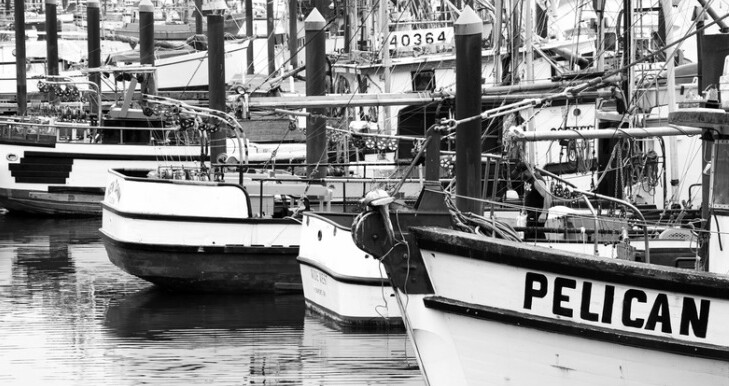Morro Bay and Port San Luis fishermen filed a lawsuit in San Luis Obispo Superior Court on Feb. 29, 2024, against the California State Lands Commission, the California Coastal Commission, three offshore wind developers awarded leases by the Federal Government, and one survey company issued a permit to engage in site surveys before the “best practices” for those surveys, enforceable mitigation and monitoring have been adopted, in efforts to rush these projects across the starting line before anyone knows the impacts.
The Morro Bay Commercial Fishermen’s Organization (MBCFO) and Port San Luis Commercial Fisherman Association (PSLCFA) have known for years that huge ocean windfarms in Federal waters could become a reality and have devoted thousands of hours negotiating with the first ocean wind developers who came to the City of Morro Bay to adapt the old power plant’s existing facilities and transmission lines as a landing point. The City Council of Morro Bay wisely told the initial developers that they had to address the concerns of the local fishermen before the city considered using city facilities, such as the outfall pipelines at the old plant for offshore wind development.
Before the federal leases were awarded, the agreements with Castle Wind, later partnering with TotalEnergies, one of the world’s largest energy developers, were transformed into the Morro Bay Lease Areas Mutual Benefits Corporation with a full range of mitigation and monitoring, jointly governed by the fishermen and the wind developers with provisions for a Morro Bay Lease Areas Commercial Fishing Mitigation Fund administered by a fiduciary Trustees’ Committee whose members are appointed by the two Associations (but can benefit non-members who fish in the area).
Mitigation was to start before site surveys commenced and continued through construction, operations, maintenance, and eventual decommissioning, funded by developer contributions for which the companies would obtain credits, which could result in a net-zero expense. Mitigation funds are required to be used “to support, foster and protect to the greatest extent feasible the short-and long-term viability of commercial fishing,” infrastructure improvements, mitigation of cumulative impacts, activities could include infrastructure improvements, monitoring and addressing future unforeseen impacts, workforce development, fish habitat mitigation studies, and many more.
The Federal Government awards the leases to the “highest bidders,” not necessarily to companies with the best mitigation and monitoring commitments. Further, as experience on the Atlantic Coast demonstrates, the companies can abandon the projects, with no actual wind energy ever produced, and the local communities and habitats left with the impacts from site surveys which killed whales and other marine species (documented in many News and YouTube videos, and press reports).
"This will industrialize the beautiful coastline on the Central Coast of California. We have fought to protect the ocean for years, and no one should deny the impacts that offshore wind will have on this area." Tom Hafer, president of MBCFO, told National Fisherman.
"We hope filing this complaint will help put the breaks on their plan."
The three wind project developers are “impact-deniers,” which they claim allows them to defer enforceable mitigation and monitoring until they know exactly what they want to build – even though that would be too late to monitor and mitigate site survey damage and harbor crowding, which would have already occurred without knowing what habitat baselines were ravaged by sonic testing; and “monitors” who can only witness limited surface areas without knowing what habitats and species are damaged below the waves. The developers are even trying now to take over the harbor facilities used by commercial fishermen for their survey boats, even though the California Coastal Act Section 39234 forbids it:
“Facilities serving the commercial fishing and recreational boating industries shall be protected and, where feasible, upgraded. Existing commercial fishing and recreation boating harbor space shall not be reduced unless the demand for those facilities no longer exists or adequate substitute space has been provided.”







